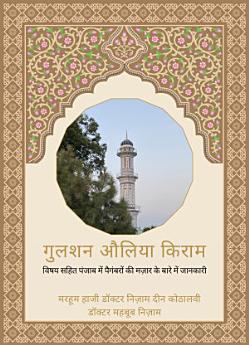Gulshan Auliya Kiram: Hindi
About this ebook
The foundational principles of Sufism included asceticism, devotion, trust in Allah, divine contentment, repentance, forgiveness, abundance, remembrance of God, and dedication to worship. They had aligned their lives with the divine commandments and the teachings of Allah's prophet (peace be upon him). The account also provides a brief description of the status and information about some saints and Sufis in the Indo-Pak subcontinent, especially in Punjab of India.
After detailing the information about the shrine of prophets in Baras, Punjab, India, the book also covers the status and information about some saints and Sufis in the united Indian Subcontinent, along with their works and writings. Heart-touching stories about the lives of great saints and holy beings have been included. After the demise of Dr. Nizam Din, his son, Dr. Mehboob Nizam, has taken over the leadership of the Nizamia Trust and is working towards its progress.
The trust is actively involved in various initiatives, such as free health camps, langar (community kitchen) for all pilgrims, empowerment and education for women in rural areas. Additionally, skill development programs are organized for people’s socio-economic upliftment. The Masjid Ambiya-e-Kiram and Minar-e-Ambiya, the second tallest religious minaret in Punjab, are established here. The Madrasa Nizamia Mujaddediya, where students receive religious education along with regular schooling, has been established, ensuring the students' well-being in terms of food, clothing, and other necessities, free of cost.
Ratings and reviews
- Flag inappropriate
